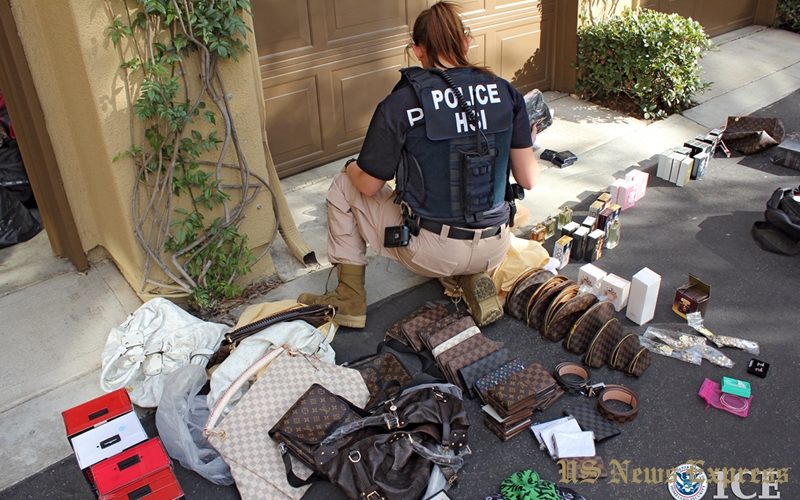WASHINGTON, D.C.—U.S. Customs and Border Protection launched “The Truth Behind Counterfeits” campaign today to raise awareness of the dangers and negative impacts of purchasing counterfeit goods. The Intellectual Property Rights (IPR) initiative is an educational awareness campaign for international travelers, designed to call attention to the growing impacts of purchasing counterfeit goods, including the loss of American jobs and the support of criminal activity. Last year CBP seized more than $1.3 billion in counterfeit goods.

“CBP is committed to protecting consumers and enforcing U.S. trade laws, and this campaign will help raise awareness and educate the traveling public about the dangers of purchasing counterfeit goods,” said Brenda Smith, Executive Assistant Commissioner for the Office of Trade. “Not only do counterfeits damage the American economy, such goods can threaten the health and safety of consumers.”
The campaign will run through July at six of the busiest U.S. international airports: Baltimore Washington International Thurgood Marshall Airport; Chicago O’Hare International Airport; Dallas/Fort Worth International Airport; Los Angeles International Airport; New York John F. Kennedy International Airport and Washington Dulles International Airport.
Counterfeit products pose criminal, financial, and consumer safety risks for the United States and its citizens. For example, the purchase of counterfeit goods often supports the funding of criminal enterprises and activity, such as money laundering, smuggling, and trafficking in illegal guns and drugs. Counterfeits also have a large impact on the prosperity of the U.S. economy. When consumers purchase these counterfeit items, legitimate companies lose revenue, translating to lost U.S. jobs and profits over time.
“America’s economy runs on authentic innovation. Criminals trafficking in illicit trade threaten America’s prosperity and may jeopardize the health and safety of unwitting consumers,” said David Hirschmann, President and CEO, Global Intellectual Property Center, U.S. Chamber of Commerce. “We applaud U.S. Customs and Border Protection for recognizing the global scope of counterfeiting and the need to educate consumers on how to protect themselves. We hope this initiative will make travelers more aware of the significant problem and real dangers of counterfeit goods.”
In addition, counterfeit goods may create health and safety concerns for consumers, as they are often made of inferior materials, manufactured under uncontrolled and unsanitary conditions and labeled with false information.



















